Reading skills development Alphabet Worksheets for Ages 4-9
8 filtered results
-
From - To
Discover our engaging Alphabet Worksheets designed to enhance reading skills for children ages 4-9. These worksheets provide a fun and interactive way for young learners to familiarize themselves with letters, sounds, and basic vocabulary. Each worksheet is crafted to support skill development through various activities, including tracing letters, recognizing words, and engaging in phonics exercises. By incorporating colorful graphics and attractive designs, our resources capture children's interest and promote active learning. Perfect for both classroom activities and at-home practice, these worksheets foster essential reading foundations while encouraging a love for literacy in early education. Start building strong readers today!
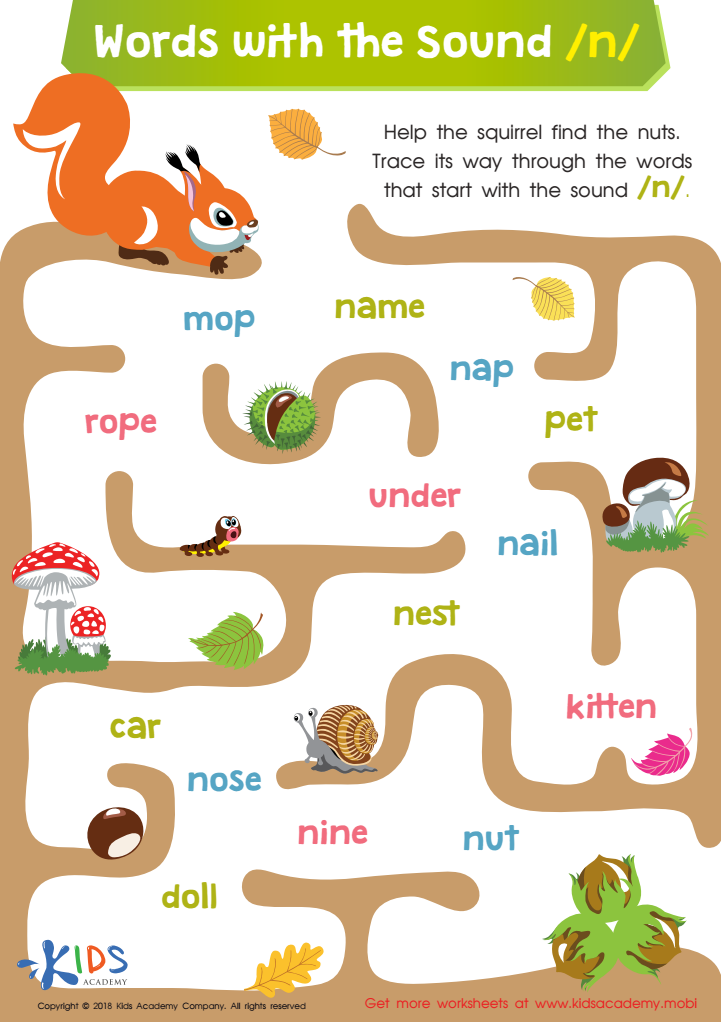

Words with Sound N Reading Worksheet
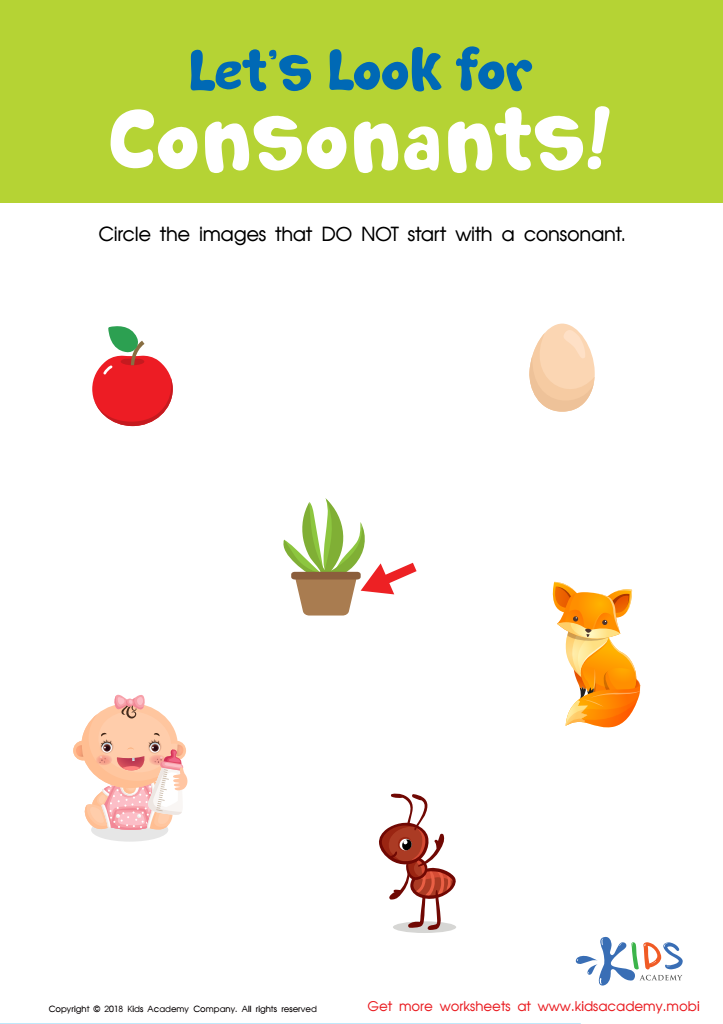

Let's Look for Consonants Worksheet
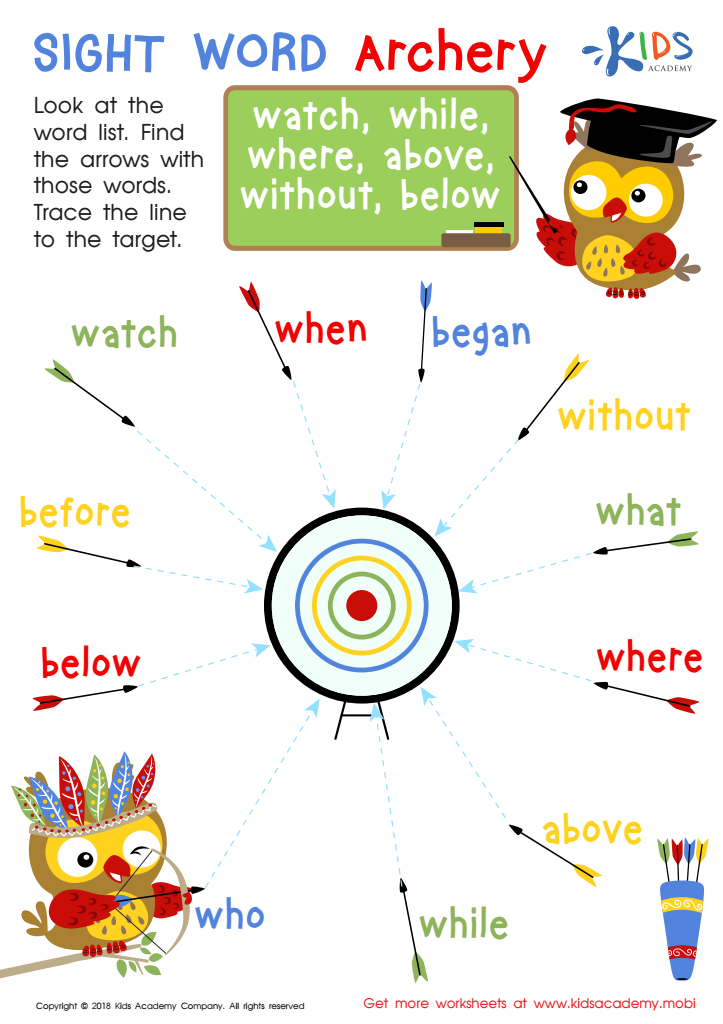

Sight Word Archery Worksheet
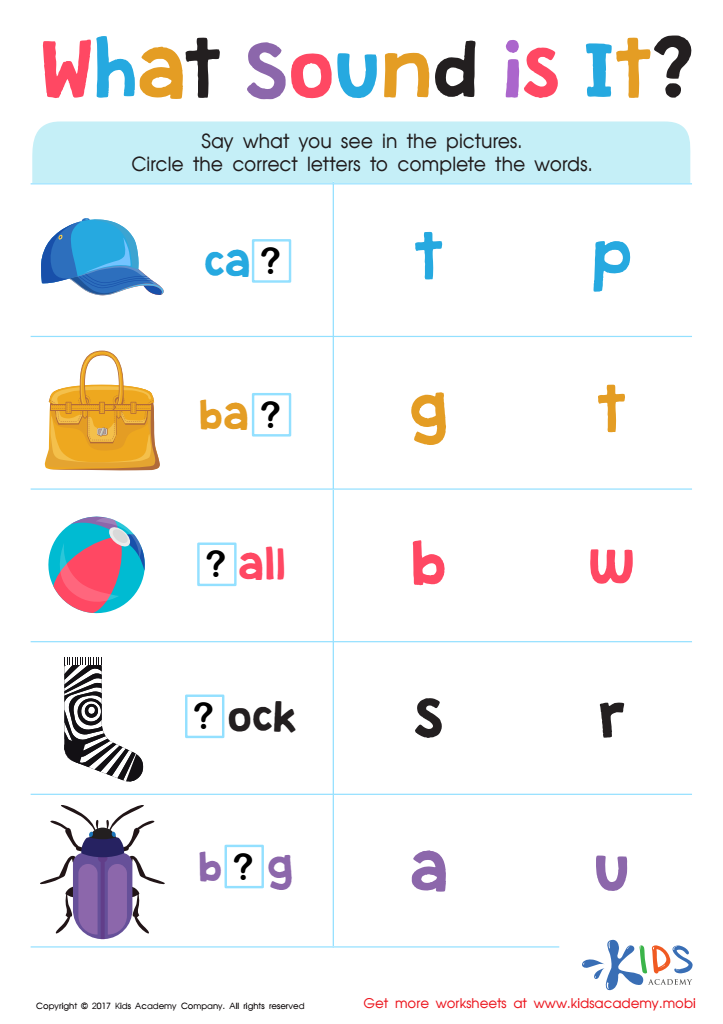

What Sound Is it? Worksheet
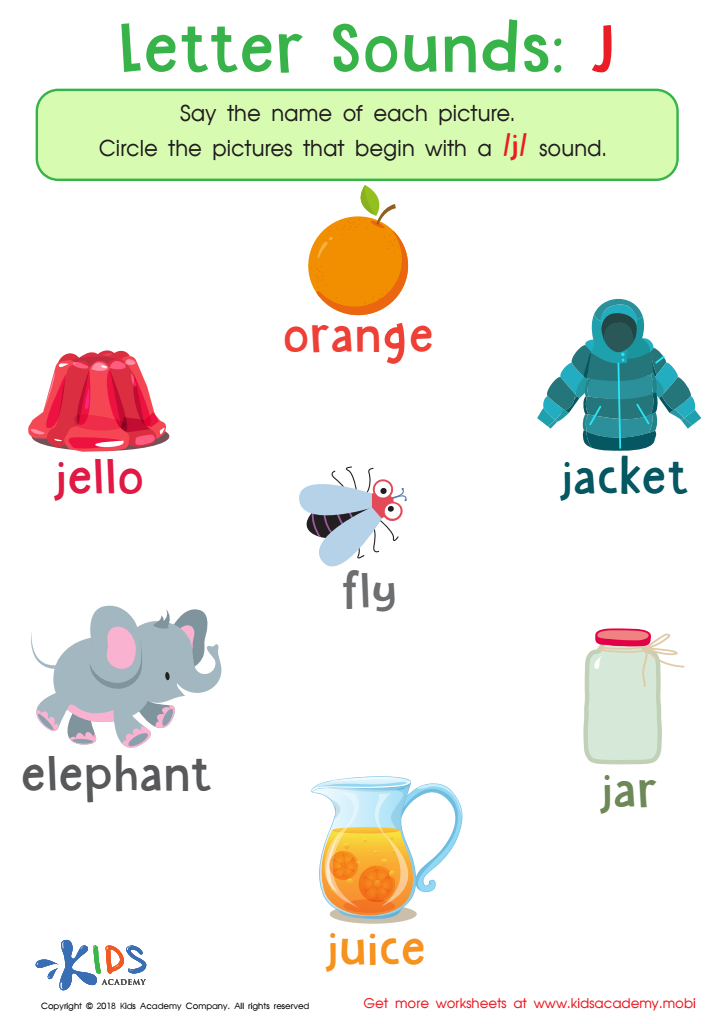

Letter Sounds: J Printable Worksheet
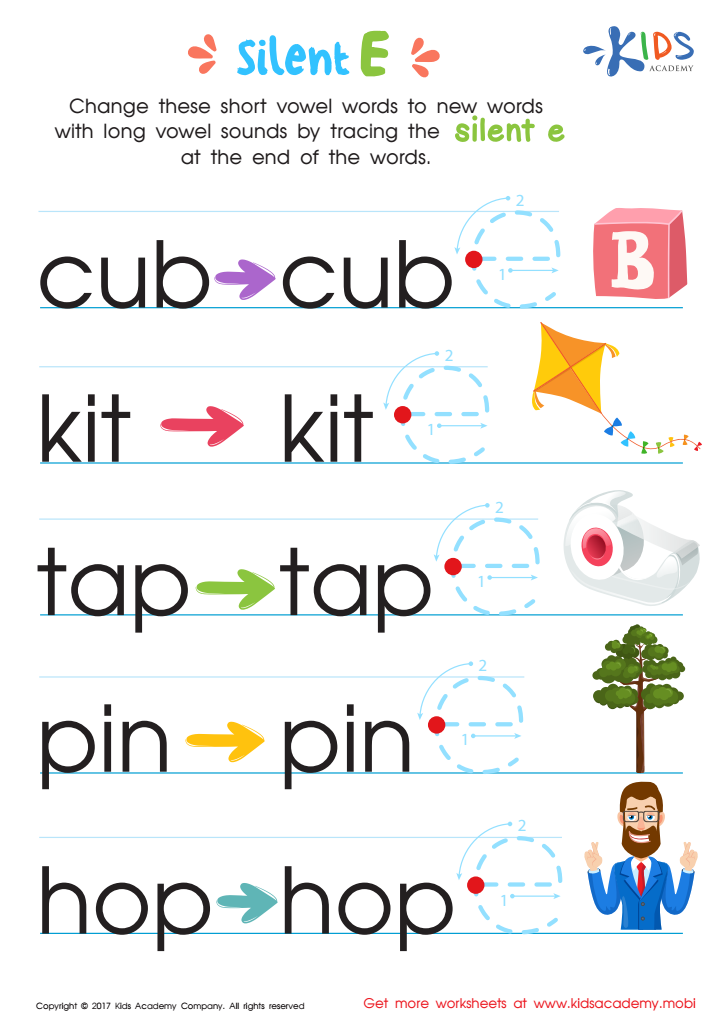

Silent E Words Worksheet
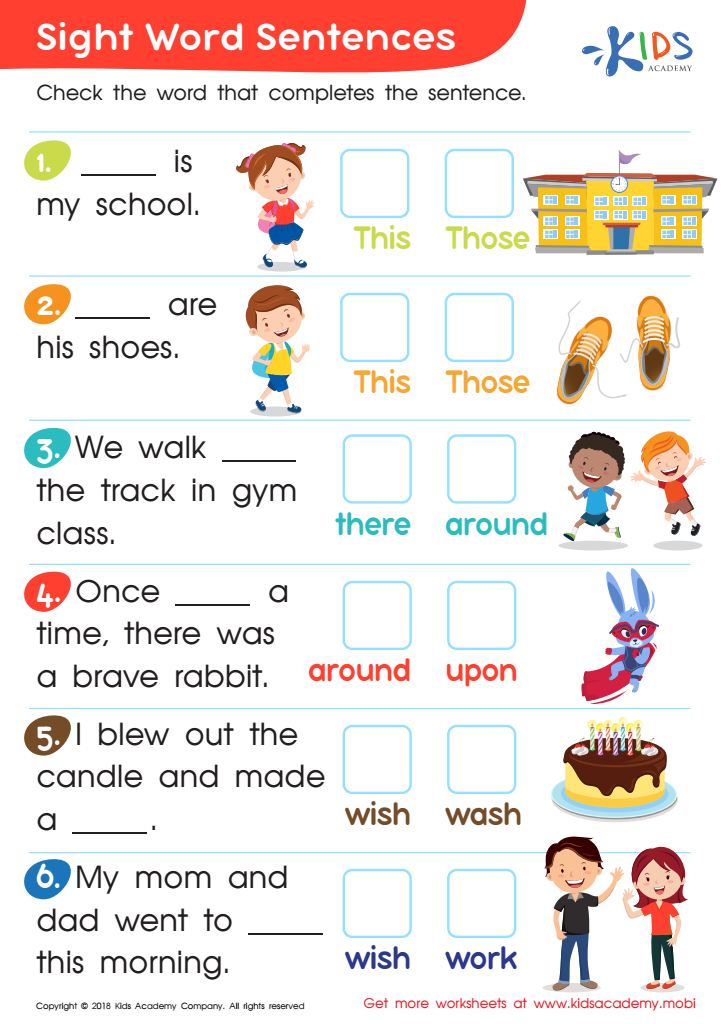

Sight Word Sentences Worksheet
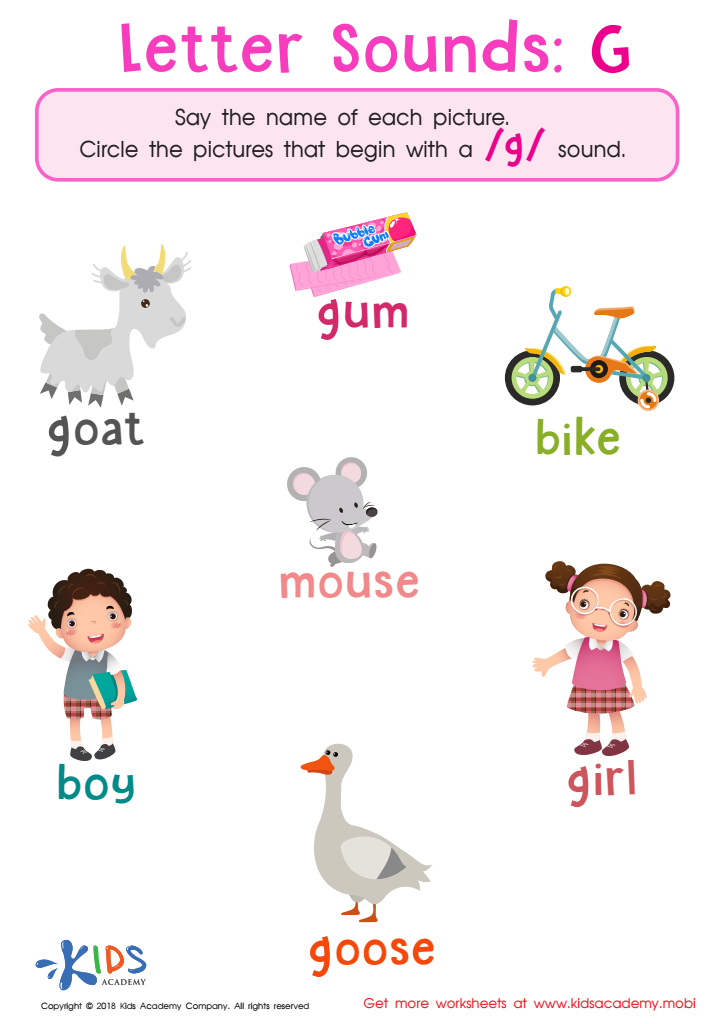

Letter G Sounds Worksheet
Reading skills development, particularly focusing on the alphabet, is crucial for children aged 4-9, and both parents and teachers should prioritize it for several reasons. Firstly, early literacy lays the foundation for overall academic success. Mastering the alphabet enables children to decode words, thereby fostering their reading skills. This foundation is essential as it not only impacts their performance in literacy but also in subjects like math and science where comprehension is key.
Additionally, recognizing letters and sounds enhances vocabulary development. Children who are proficient in the alphabet are more likely to explore books, engage in discussions, and increase their language skills. This engagement not only promotes learning but also builds confidence and a love for reading.
Moreover, reading skills have significant social and emotional implications. Being able to read allows children to connect with their peers, participate in conversations, and express themselves effectively. This, in turn, builds self-esteem and facilitates better communication skills.
In conclusion, fostering alphabet recognition and reading skills in early learners is vital. It serves as the cornerstone for academic achievement, enhances language proficiency, and contributes to social and emotional development, making it a critical focus for parents and educators alike.
 Assign to My Students
Assign to My Students




















